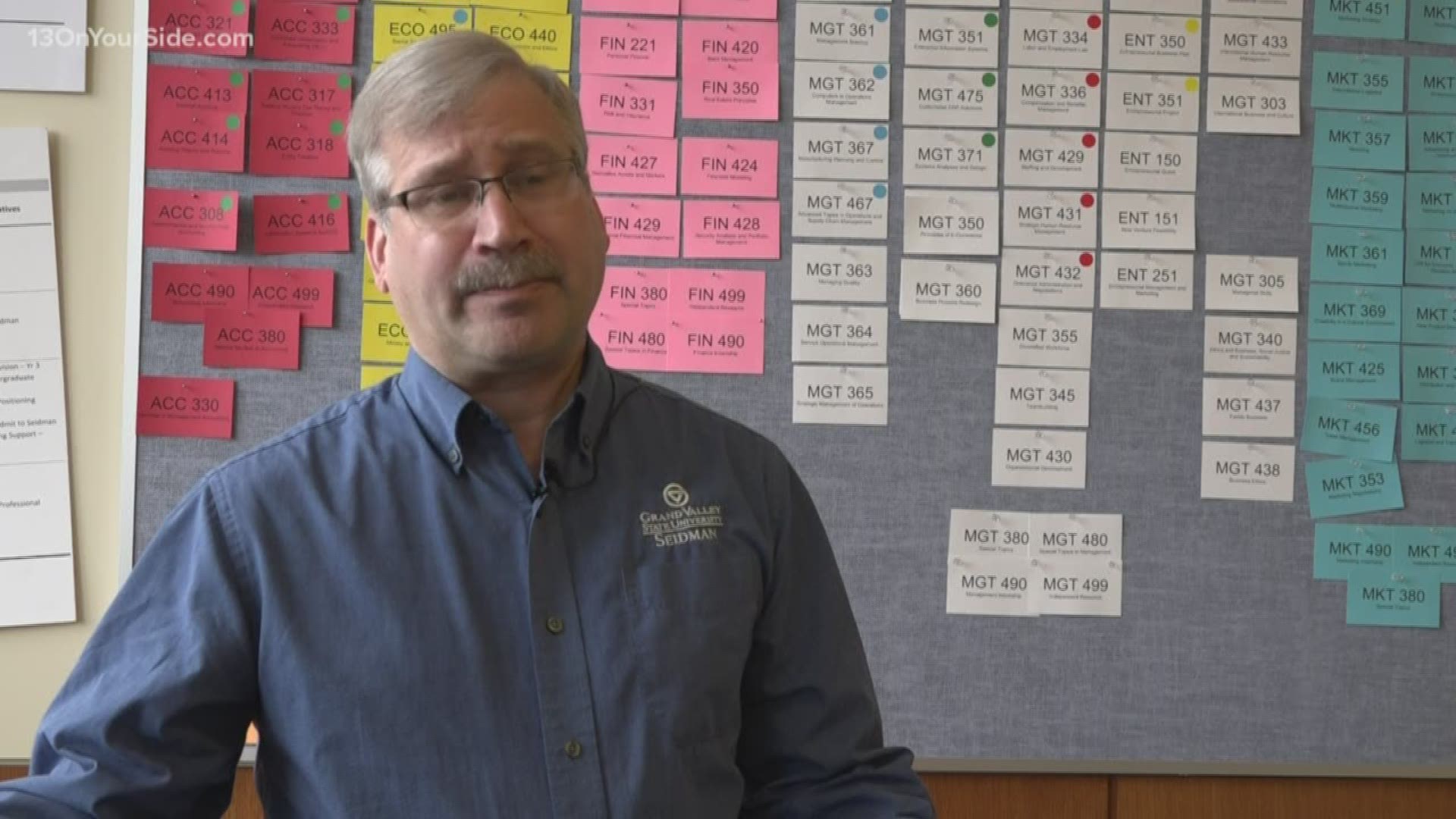GRAND RAPIDS, Mich. — It was six months ago this week Governor Gretchen Whitmer began to shut down the state in response to a growing Coronavirus threat. First schools and large events, followed by gyms, bars, restaurants, barbershops, salons, tattoo studios and more.
"The first two months were very, very bad. In fact, they were historically bad. Nothing has ever gotten close to it," says Paul Isely, Associate Dean for GVSU's Seidman College of Business. "But, as we got to the end of April, we started to see things start to pick up. Now, we've made it about halfway back. But, during that, businesses had to try and survive, and different businesses had different.
They had different problems and different outcomes. According to Isely, Michigan restaurants were among the hardest hit. He says roughly 20% of those open in March are now closed for good.
RELATED: How do you save during a pandemic?
"Now it gets harder because now we have businesses that have gone out of business. So, the longer this went on, the more businesses would cease to exist. And, if those businesses don't exist, there's no jobs for people to go back to," says Isely. "Those business failures are harder to predict, because we don't know how much capital they had going in."
Isely says bars, entertainment venues and fitness centers are among other businesses still feeling the pain. But he says the retail and automotive sectors have already started to bounce back.
"We know, nationwide, those recreation businesses have been hardest hit. They are also among the most hard hit here in Michigan. But particularly places associated with beaches or hiking, or those sorts of things, have been able to recoup some of those early losses as we went into the second half of the summer," he said. "As we start heading into the winter, and as things start to cool off, it gets harder to eat outside. It starts to get harder to shop and outside. Then, we're going to see more struggles."
Although they have been allowed to reopen, Isely says many businesses are not able to turn enough of a profit with restrictions such as limited capacity. He says many are looking ahead at their financial outlook and deciding to cut their losses now.
"We're already starting to see the, the number of restaurants and bars that are closed, start to go up again. And, now, as we're getting to the end of summer, we're starting to see, bankruptcies go up a little bit and we're starting to see business closures go up," said Isely. "The good news is we're past the worst, as far as the economy goes."
Isely believes Michigan's economy will continue a slow upward climb through the end of the year. But take another 18 months before it's back to normal, perhaps longer for businesses connected to the travel industry.
"We're going to have a couple of little bobbles here in the fall as some of the stimulus comes off. We certainly have uncertainty surrounding the presidential election, which always causes angst. We might have a month that's down, but the trend, at this point, is up. The key is can we get back fast enough. The economy will get better. The question will be, will each family be able to make it to when it gets good for them," he said.
In that regard, Isely suggests the current recession is very much like COVID-19 -- unpredictable.
"It's not like in 2009 when banks failed, or the financial system had problems. This one is about a virus. It's about fear of that virus. And until that fear subsides, we won't be able to grow our way out of this," he said.
►Make it easy to keep up to date with more stories like this. Download the 13 ON YOUR SIDE app now.
Have a news tip? Email news@13onyourside.com, visit our Facebook page or Twitter. Subscribe to our YouTube channel.


